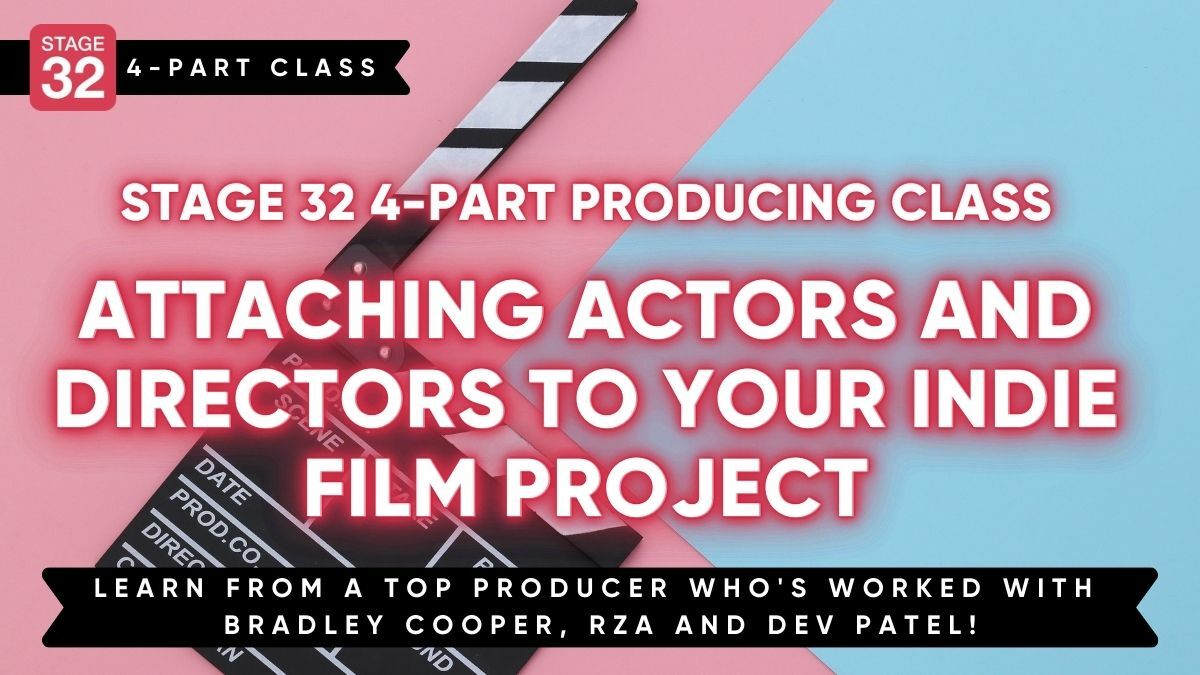About 8 months ago I viewed this video clip that was shared here on Stage 32 (https://www.stage32.com/blog/Coffee-and-Content-5-Huge-Filmmaking-Mistak...) and made a comment that I didn't agree wholly with what Creative North said were the huge mistakes to avoid in filmmaking. RB invited me to start a constructive convo here about it and so - here we are! Better late than never! sheesh - sorry totally didn't see this opportunity... (I'd say that could be one of the huge mistakes to avoid!) I have a little more experience now - so I feel I can start this convo...
The points that Creative North make are these - with my comments:
1. There is no such thing as a "Happy Writer" - which they describe as a someone who "waits for someone to come and save them." They're advice is to get out and make your own stuff.
- I agree with this. I think that waiting for your "patron" whether that's a studio, producer, etc. is not exactly the best way to get things done. Or to wait. If you are waiting, I hope at least you have sent out a query to a few good prospects... However, we can not ignore those times when that worked perfectly well for someone. IMO - the best approach is to try to be brutally honest with yourself. To know when the waiting is about: procrastination, or, fear, or, a false sense that something really will happen, and then it doesn't. That wall you've just hit can stop you in your tracks if you become too myopic in how you approach getting your stuff out there. It is crucial to reevaluate your thinking process. IMO - making sure you are always moving forward is key.
2. Find a good, entertaining story. No one wants to watch a bad story.
- I know what they are trying to say here and I believe we all know this. To me, all our stories have value - in some way to someone. I think here - if you want "success" in that big way, then you're stories have to adhere to, but not be defined by, the way stories are expected and accepted by the masses. That said, you have to define for yourself what "masses" you think you're speaking to. Some say that my stories are more "European" in flavor - does that mean that I will not find success in the N. American market - no. But I am aware of what that success might look like. IMO - awareness of your talents, voice, appeal and who is your audience, is the answer to "make an entertaining story."
3. Do your research. And do a lot of it before you go out and film.
- I find that sometimes "knowing" too much about your story will kill creativity. And you are left with a tight adherence to fact and not to story. Story, IMO, is when a Creative can take something that is common, something that is real and make it part of a greater language of identity, commonality and home. If you are telling a historical, period story - then yes do your research. Seeing beyond it into the humanity - our commonality - home, will make it your own.
4. Great film craft. Bad film, sound, editing is not good for anyone's career or for the story.
- I agree to a degree. We have come from making films that were black and white to color, silent to sound, film that could be overdeveloped to pristine color. From the timing being off to digital precision. And then we can actually be able to go back again. Sometimes the mistakes in filming can add to the overall feel/quality of the story - IMO. I don't think that we have to be terribly obsessed with perfection - in fact, I think that sometimes, as new filmmakers with digital equipment at our finger tips, need to learn that the story is key and the technology is second to that. I know a lot of techies will disagree vehemently and that's fine. We used to call it "happy accidents" when a color bled into another on a poster or when something was out of focus when you'd think it should not be (ok - this actually happened to me :), but honestly, I think the shot added to the story. Honest. ;) )
5. Don't do things the same way everyone else does to get your film out - it's too competitive.
- I agree with this somewhat. My take is that every project is different (which they say they approach their films differently each time) and I think that's the point. Each project has different needs. So to approach financing, marketing and producing in the same way as another - might not work. But I think, there is something to be said about finding a route that feels right to you. They say: "don't do what everyone else does" which IMO, is not exactly the way to phrase this - maybe it's about - sometimes we want to get advice, get hand-held, be shown how to get our films done because it can be so overwhelming and asking someone how they did it might not be the way you should do it. But I find that sometimes, when you start out doing it "the same way as everyone else" that avenues open that were not apparent early on. The best advice really to me is - try everything! And begin with the route that speaks to you for whatever reason - your situation, the kind of film it is, the people you are in contact with, what you're comfortable with. Small steps will build your confidence.
The best thing, I think, will help you get your work out there, off the ground and into the can - is to be patient. With yourself. With the work. With the story. Don't rush it if it isn't ready to happen. Then all the advice you got will make sense for you and your instincts will kick in. Patience is the best way to stay creative. And getting a film off the ground takes a lot of it.
What say you, fellow filmmakers!? What is it that helps you get stuff going and done?
Good luck. Have fun.
Peace!
CK


